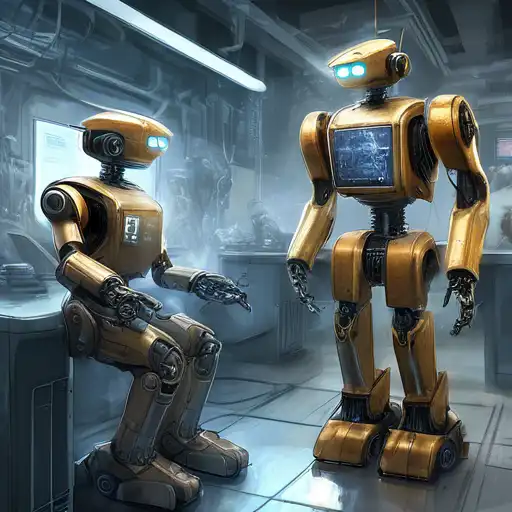Introduction to Autonomous Robots and Ethical Considerations
In the rapidly evolving world of technology, autonomous robots have become a cornerstone of innovation. These self-operating machines, powered by artificial intelligence (AI) and machine learning, are transforming industries, from manufacturing to healthcare. However, as their capabilities expand, so do the ethical questions surrounding their use. This article delves into the moral landscape of autonomous robots, exploring the balance between technological advancement and ethical responsibility.
The Rise of Autonomous Robots
Autonomous robots are no longer the stuff of science fiction. Today, they perform complex tasks without human intervention, thanks to advancements in AI and robotics. From self-driving cars to robotic surgeons, these machines are making significant impacts. Yet, their autonomy raises critical ethical questions, such as accountability in the event of malfunctions or accidents.
Ethical Dilemmas Posed by Autonomous Robots
The deployment of autonomous robots introduces several ethical dilemmas. Key among these is the question of accountability. When a robot makes a decision that leads to harm, who is responsible? Is it the manufacturer, the programmer, or the robot itself? Additionally, there's the issue of privacy, as robots equipped with sensors and cameras can collect vast amounts of data, raising concerns over surveillance and data security.
Ensuring Ethical Use of Autonomous Robots
To navigate these ethical challenges, it's essential to establish guidelines and regulations for the development and use of autonomous robots. This includes creating ethical frameworks that prioritize human safety and privacy. Moreover, fostering transparency in how these robots make decisions can help build trust among users and mitigate fears of unchecked autonomy.
Conclusion: Balancing Innovation with Ethical Responsibility
As autonomous robots become more integrated into our daily lives, the need for ethical considerations has never been more critical. By addressing these challenges head-on, we can ensure that the benefits of autonomous robots are realized without compromising our moral values. The journey ahead requires collaboration among technologists, ethicists, and policymakers to create a future where technology serves humanity's best interests.
For further reading on the impact of AI and robotics, explore our articles on Artificial Intelligence and Machine Learning.
